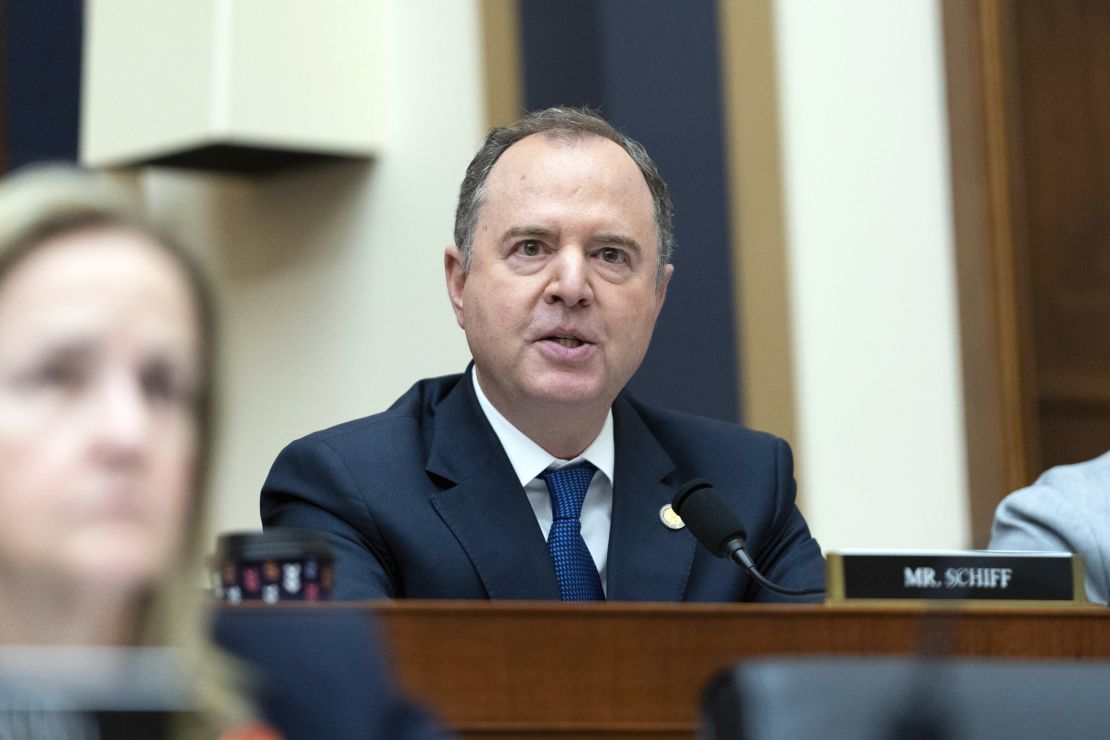A whistleblower has come forward with explosive claims regarding the actions of Senator Adam Schiff (D-Calif.) during the investigation into alleged Russian interference in the 2016 U.S. presidential election. According to statements recently released, Schiff, who at the time served as the top Democrat on the House Intelligence Committee, allegedly authorized leaks of classified information intended to damage then-President Donald Trump’s public standing. The claims, if verified, suggest a politically motivated strategy within congressional ranks that blurred the lines between oversight responsibilities and partisan maneuvering.
The whistleblower, an unidentified male staffer with over three decades of experience in intelligence and more than a decade on the House Intelligence Committee, provided testimony to FBI agents in December 2017. The statements describe a tense atmosphere among committee members following Trump’s unexpected victory in the 2016 election. The whistleblower claimed that Schiff, anticipating a CIA directorship under a potential Hillary Clinton administration, was particularly disappointed by the election outcome. The source indicated that this expectation had been widely discussed among congressional staff in late 2016.
According to the whistleblower, Schiff believed that Russia had manipulated the election results and that the country was experiencing a constitutional crisis. In response, the whistleblower alleges that classified materials were strategically leaked to the media, with the intention of undermining the Trump administration. The Democratic minority leadership on the Intelligence Committee, the source claimed, was aware of these leaks but operated under the assumption that exposing the information would help address what they perceived as a constitutional emergency.
In a separate FBI interview conducted in June 2023, the whistleblower recounted a staff meeting convened by Schiff, during which the senator reportedly instructed his team to leak information derogatory to the president, with the goal of initiating legal proceedings against Trump. The whistleblower objected, characterizing the proposed actions as unethical and potentially treasonous. Despite his objections, he was reportedly reassured by colleagues that they would not face consequences for disclosing classified materials.
The whistleblower also recounted being approached multiple times regarding participation in these leaks and maintaining his stance that such actions were inappropriate. He subsequently contacted the FBI and was invited to participate in a mock grand jury session. Despite this, the Justice Department ultimately chose not to pursue further investigation. Sources suggest that Schiff was shielded by the Constitution’s Speech or Debate Clause, which protects legislators from prosecution for actions taken in the course of their legislative duties, except in instances involving felony, treason, or breach of the peace.
The whistleblower emphasized that he did not believe Schiff’s alleged activities fell within the protections of the Speech or Debate Clause, citing the deliberate nature of the leaks and the intent to influence public perception and political outcomes. These assertions add to longstanding suspicions among Republicans that Schiff had engaged in a coordinated effort to leak sensitive information during the early days of the Trump administration, particularly surrounding the investigation commonly referred to as “Russiagate.”
Additional context surrounding the leaks includes claims that the Democratic staff created a system for reviewing and selectively releasing classified information. According to the whistleblower, documents were first reviewed by Schiff before decisions were made about which materials would be leaked and to whom. Rep. Eric Swalwell (D-Calif.) was identified as one individual allegedly involved in the dissemination process. A specific document described as highly sensitive reportedly passed through a small group of lawmakers and staff, including Schiff and Swalwell, before being leaked almost verbatim within a single day.
The whistleblower’s statements were corroborated in part by FBI Director Kash Patel, who confirmed that documentation regarding the leaks had been declassified and made available to Congress. Patel, a former aide to Rep. Devin Nunes, previously highlighted concerns about potential abuse of authority within the FBI during the Crossfire Hurricane investigation. He noted that the whistleblower had relationships with both Schiff and Nunes, and had experience collaborating with senior political leaders across party lines.
The whistleblower’s professional trajectory also reflected tensions related to party loyalty. According to a 2017 FBI memo, there was a perception among staff that the whistleblower had been dismissed for refusing to participate in unauthorized leaks, a decision framed as a breach of expected party conduct. This has been cited as evidence of a culture in which leaking classified information was considered routine among certain members and staffers of the Intelligence Committee.
Republicans have pointed to these allegations as part of a broader critique of the handling of classified intelligence during the Trump-Russia investigation. Schiff, who played a leading role in the first impeachment proceedings against Trump, has consistently faced scrutiny for his involvement in both congressional investigations and the public dissemination of sensitive information, including portions of the Steele dossier. The whistleblower’s account suggests that these actions were part of a deliberate strategy rather than isolated lapses in judgment.
The controversy surrounding Schiff has extended to allegations of financial misconduct. A grand jury in Maryland has been convened to examine whether Schiff manipulated property and mortgage documents to secure favorable loan terms, with charges under consideration including mortgage fraud, mail fraud, bank fraud, and providing false statements to financial institutions.
Beyond Schiff, the investigation into intelligence and law enforcement activities during the Trump-Russia probe has expanded to include other former officials. The FBI has initiated inquiries into former CIA Director John Brennan and ex-FBI Director James Comey to determine whether any criminal actions occurred in relation to their roles in intelligence assessments that allegedly favored political narratives. The Justice Department also launched a strike force following the release of a report by former Director of National Intelligence Tulsi Gabbard, which detailed errors in the assessment of Russian electoral preferences.
These developments underscore the complex interplay between congressional oversight, intelligence operations, and political strategy during a highly contentious period in U.S. politics. The whistleblower’s testimony suggests that the boundaries between legitimate investigative oversight and partisan activity may have been crossed, raising questions about accountability and the appropriate use of classified information.
Political analysts note that the allegations, if substantiated, have significant implications for public trust in government institutions and the perceived impartiality of congressional oversight. They also highlight the challenges inherent in ensuring that intelligence and classified materials are protected while allowing legislators to carry out their duties in a manner that is transparent and responsible.
The situation continues to generate debate among policymakers, legal experts, and the public. Republican commentators argue that the leaks were part of a coordinated effort to undermine a sitting president and manipulate public perception, while supporters of Schiff emphasize his constitutional protections and argue that the actions were conducted within the scope of legitimate legislative oversight.
As the FBI materials and whistleblower statements remain under review, Congress is expected to consider the broader implications of these allegations for legislative processes, the protection of classified information, and the oversight responsibilities of congressional committees. The ongoing discussions reflect the persistent tensions between national security, political interests, and the rule of law, which have shaped the discourse around Russiagate and related investigations.
In sum, the whistleblower’s revelations about Adam Schiff, leaks of classified intelligence, and potential political motivations during the 2016–2017 period provide a detailed window into a highly charged and contentious chapter of U.S. politics. The claims raise fundamental questions about ethics, legal boundaries, and accountability in the intersection of intelligence and legislative activity.

Emily Johnson is a critically acclaimed essayist and novelist known for her thought-provoking works centered on feminism, women’s rights, and modern relationships. Born and raised in Portland, Oregon, Emily grew up with a deep love of books, often spending her afternoons at her local library. She went on to study literature and gender studies at UCLA, where she became deeply involved in activism and began publishing essays in campus journals. Her debut essay collection, Voices Unbound, struck a chord with readers nationwide for its fearless exploration of gender dynamics, identity, and the challenges faced by women in contemporary society. Emily later transitioned into fiction, writing novels that balance compelling storytelling with social commentary. Her protagonists are often strong, multidimensional women navigating love, ambition, and the struggles of everyday life, making her a favorite among readers who crave authentic, relatable narratives. Critics praise her ability to merge personal intimacy with universal themes. Off the page, Emily is an advocate for women in publishing, leading workshops that encourage young female writers to embrace their voices. She lives in Seattle with her partner and two rescue cats, where she continues to write, teach, and inspire a new generation of storytellers.









